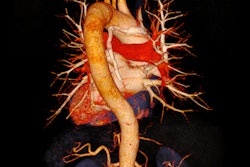Researchers at the University College London have developed a way to use MRI scans to help identify when HIV persists in patients' brains despite drug treatment.
The study, published in Clinical Infectious Diseases (13 March 2017), shows patients can have HIV in the brain even when the disease is controlled by treatment.
About 15% of HIV patients experience cognitive problems due to the virus. Usually, a lumbar puncture is performed to confirm this, but now MRI scans can help identify high-risk individuals for further follow-up tests, the researchers found.
They looked at data from 146 HIV patients who were investigated for cognitive problems between 2011 and 2015. HIV was active in the brain in 22 patients (15%), and patients whose brains showed definite signs of change in the white matter were 10 times more likely to have HIV in the brain than those with normal white-matter appearances.
The diffuse white-matter signal abnormalities are linked to cognitive problems and can be triggered by inflammation in the brain caused by HIV infection. Knowing this, physicians can change the treatment regime to add drugs that cross the blood-brain barrier more effectively to control the infection.



















